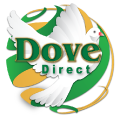Security and Paper Invoicing
Welcome to the Dove Direct Print and Marketing Blog. Today's post, "Security and Paper Invoicing" revisits the perception between paper versus electronic invoicing models in a world where digital breaches of personal information have become the norm. It's true that e-billing is growing due to its overall lower cost, as businesses look to save money, increase productivity, and reduce their operational costs. However, data breach escalations have become so prominent across industries, that many people are expressing grave concern regarding how and where their private data is stored and managed.
While the jury remains out as to whether paper invoicing will lose all ground, the general concern over electronic billing and the data breaches that can occur may catapult paper documents back to the forefront. Due to headline news breaches of banks and creditors, it should come as no surprise that the general populations' lack of trust in electronic billing will help to reaffirm trust and confidence in hardcopy transactional documents, especially invoices.
Electronic invoicing may be convenient for most businesses, but not so for individuals. In one example, a Toluna commissioned survey conducted by Two Sides noted that 78% of US respondents keep hard copies of valuable documents at home. The kicker is that these US respondents believe that paper documents are the safest and most secure method to store information.
Additionally, 76% of these same respondents voice concerns that personal data held electronically presents multiple high risks including hacking, losing or damaging their information.
Millions of households, small businesses, and patients experience data breaches every year. Organizations looking to secure their transactional relationships with their customers may want to rethink the electronic invoicing model, particularly as it relates to trust.
Trust In Paper
Social Media is awash in hoax-based content, disinformation campaigns, and false news reporting. These types of fraudulent content begin on the internet and make their way to various social media channels. One trend underfoot points to a growing number of electronic invoice recipients taking screenshots of information and printing it for personal storage.
The same survey also found that 74% of respondents believe that fake news is a worrying trend. Therefore, it should come as no surprise that 56% stated that they trust news articles that they read in newspapers, while only 35% trust news that they read on social media channels. Moreover, a whopping 64% were very concerned if printed newspapers went away. In short, print collateral continues to have great value, particularly when it comes to trustworthiness.
The survey results make the case that print collateral in various forms and purposes, from newspapers to invoices to health and financial records, is viewed as a more secure method for delivery of information over and above its digital counterpart. Although, not all demographic ranges are in total agreement with print versus electronic invoicing.
Demographic Variances
The following questions, while a small portion of the survey point to a difference between the 18-24 year olds and the overall responses.
Statement 1: I keep hard copies of important documents filed at home, as I believe this is the safest and most secure way of storing my information:
- Overall Response: Agree + Strongly Agree = 79%
- 18-24 year-old Response: Agree + Strongly Agree = 68%
- Difference between Overall vs. 18-24-year-old age group = 11%
Statement 2: I am increasingly concerned that my personal information held electronically is at risk of being hacked, stolen, lost, or damaged:
- Overall Response: Agree + Strongly Agree = 76%
- 18-24 year-old Response: Agree + Strongly Agree = 65%
- Difference between Overall and 18-24-year-old age group = 11%
Statement 3: I would be very concerned if printed newspapers were to disappear:
- Overall Response: Agree + Strongly Agree = 64%
- 18-24 year-old Response: Agree + Strongly Agree = 61%
- Difference between Overall and 18-24-year-old age group = 3%
Statement 4: I trust the news stories I read in printed newspapers:
- Overall Response: Agree + Strongly Agree = 56%
- 18-24 year-old Response: Agree + Strongly Agree = 57%
- Difference between Overall and 18-24-year-old age group = 1%
Statement 5: I trust the news stories I read on social media:
- Overall Response: Agree + Strongly Agree = 35%
- 18-24 year-old Response: Agree + Strongly Agree = 37%
- Difference between Overall and 18-24-year-old age group = 2%
Statement 6. Fake News is a worrying trend:
- Overall Response: Agree + Strongly Agree = 73%
- 18-24 year-old Response: Agree + Strongly Agree = 78%
- Difference between Overall and 18-24-year-old age group = 5%
The degree of variance in the survey's results between the overall response rate and that of the 18-24 year-old demographic is not that far apart. Although it should be noted that the 18-24 year-olds response to fake news as worrisome, exceeds the overall group by a total of 5%. Perhaps, one might think that the overall respondents would be more concerned regarding a fake news trend than 18-24 year-olds. Alas, such is not the case!
Brands are consistently grappling with marketing strategies that foster trustworthiness in combination with personalization aspects. To that end, it would appear that brands and marketers would be wiser to offer paper documents for certain products and electronic statements where trust may play a diminished role.
The Net-Net
Data breaches appear to have no end in sight, and while the social media construct continues to fight against personal data hacks, smart brands will lead the way by ensuring better data security by employing paper billing options. Thanks for reading "Security and Paper Invoicing."
Let's have a conversation about direct mail strategies, printing, print software, transactional documents, variable digital printing, brand equity and unified marketing. Let us show you how to improve your document processes to optimize your workflow, reduce your costs, and maximize your organization's printing, letter shop, and mailing capabilities. Dove Direct does have an official USPS certified bureau located within our offices that will save you time and money. And, if you bring us your files, we will create a demo file for you. For more information call Carla Eubanks at 404-629-0122 or email Carla at This email address is being protected from spambots. You need JavaScript enabled to view it..
Atlanta based print and mail solutions provider offers organizations end-to-end data, printing and mailing solutions: Data Management, Variable Digital Printing, LetterShop and Fulfillment, Fully Automated MLOCR Presort Bureau, Marketing and Production Management Support and Secure Data Life Cycle Management.
You can reach Dove Direct today by calling 404-629-0122 or use the Contact Form for Dove Direct.





